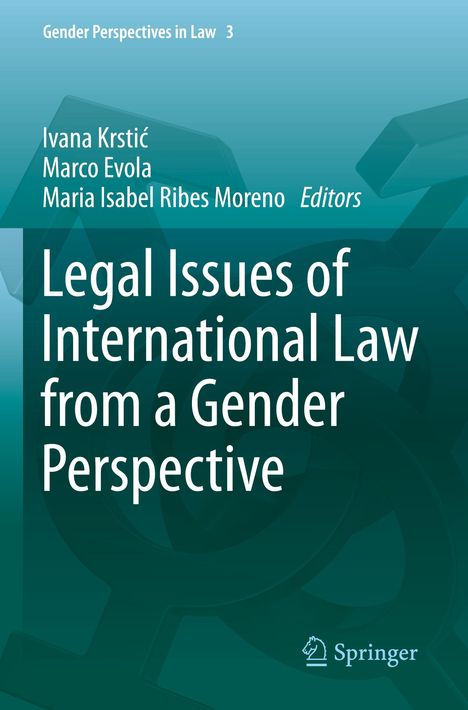Legal Issues of International Law from a Gender Perspective
Legal Issues of International Law from a Gender Perspective
Buch
- Herausgeber: Ivana Krsti¿, Maria Isabel Ribes Moreno, Marco Evola
- Springer International Publishing, 02/2024
- Einband: Kartoniert / Broschiert, Paperback
- Sprache: Englisch
- ISBN-13: 9783031134616
- Bestellnummer: 11769265
- Umfang: 244 Seiten
- Nummer der Auflage: 24001
- Auflage: 1st edition 2023
- Gewicht: 376 g
- Maße: 235 x 155 mm
- Stärke: 14 mm
- Erscheinungstermin: 17.2.2024
Achtung: Artikel ist nicht in deutscher Sprache!
Weitere Ausgaben von Legal Issues of International Law from a Gender Perspective
Klappentext
This book offers a new perspective on international law, which was, for centuries, male-dominant and gender-blind. However, this gender blindness has led to many injustices, the failure to recognize certain rights, and to impunity for serious crimes. The book examines the development of gender perspectives in various branches of international law, while also discussing and explaining certain universal standards. However, particular attention is paid to the European human rights system.Accordingly, the book provides detailed explanations of the EU s external policies in relation to sex, sexual orientation, and gender identity. Also, there is a special focus on the relevant jurisprudence of the European Court of Human Rights in relation to gender and sexual orientation, female reproduction, and sexuality. The authors explain not only the importance of an adequate legal framework for combating gender inequality but also the detrimental effects of deeply rooted gender stereotypes and prejudices. Subsequently, the development of particular branches is presented, such as a gender-sensitive approach to the prevention of war crimes, gender perspectives in refugee law, and the evolution of gender-sensitive environmental law. In addition, the problematic situation of discrimination in the workplace is addressed from various perspectives. Many discussions, especially among EU member states, are reserved for the issue of women s participation in managerial boards, while the growing awareness of gender equality in international trade agreements represents another interesting topic. Lastly, the book offers a historical perspective on the development of international law in the interwar period, with a particular focus on the situation in Yugoslavia.
The book critically reconsiders the dominant molds of legal knowledge and presents innovative gender-sensitive and gender-competent insights on a variety of issues in international law, in order to introduce readers to new research topics relevant to gender equality and to stimulate the development of an international legal and institutional framework for achieving greater gender equality in practice. The collection of essays presented here will be of interest to all those working in the field of international law, as well as students and academics looking to broaden and deepen their research on a range of issues in international law from gender perspectives.


